A Conversation with Bruce Duffie
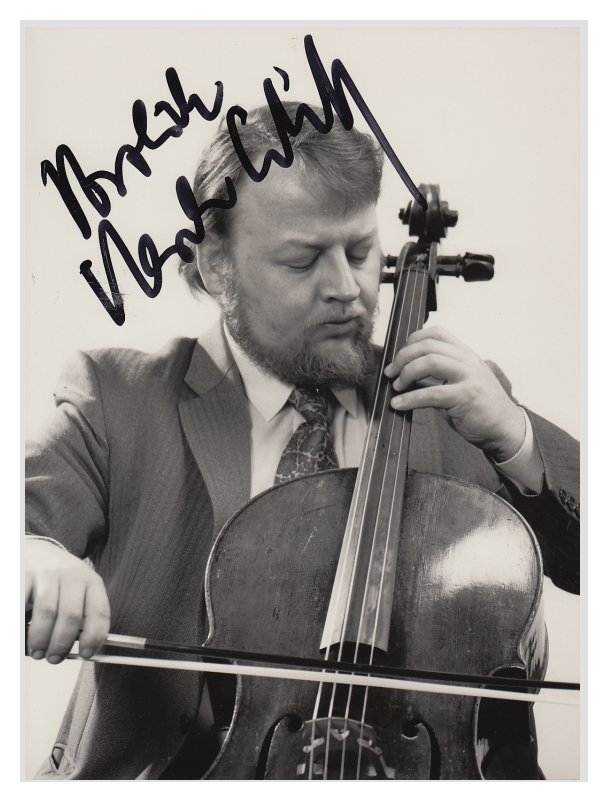

|
Heinrich Schiff
(Cello, Conductor)
Born: November 18, 1951 - Gmunden, Austria The Austrian cellist and conductor, Heinrich Schiff, began playing piano when he was 6, and took up cello at the age of 10. His major teachers were Tobias Kühne and André Navarra, with whom he shares the qualities of a lean, centered, yet singing tone and a lyrical approach to the instrument. He studied conducting with Hans Swarowsky, one of the great conducting teachers of the time. Schiff made his debut as a cellist in Vienna and London in 1971 at the age of 20. Since then he has been a regular guest of all leading orchestras, at the big music centers and at the major festivals in Europe, North America and Japan. He has played with such great conductors as Claudio Abbado, Sergiu Celibidache, Riccardo Chailly, Colin Davis, Christoph von Dohnányi, Christoph Eschenbach, Michael Gielen, Bernard Haitink, Nikolaus Harnoncourt, Mariss Jansons, Charles Mackerras, Kurt Masur, Simon Rattle, Esa-Pekka Salonen, Wolfgang Sawallisch, Giuseppe Sinopoli, Klaus Tennstedt and Franz Welser-Möst. Apart from all the principal works of the standard repertoire, contemporary music plays an important role in Heinrich Schiff's artistic work. He frequently collaborates with composers such as Luciano Berio, John Casken, Friedrich Cerha, Michael Gielen, Hans Werner Henze, Ernst Krenek, Witold Lutosławski, Krzysztof Penderecki, Matthias Pintscher, Wolfgang Rihm and Hans Zender. He has premiered works of Friedrich Cerha, Hans Werner Henze, Luciano Berio, Krzysztof Penderecki, and Ernst Krenek. At the Salzburg Festival 2006 he performed Johannes Maria Staud's new composition (Segue) with Daniel Barenboim and the Wiener Philharmoniker. With the latter he also gave the premiere of Otto M. Zykan's cello concerto Beethovens Cello conducted by Zubin Mehta. After a highly acclaimed tour across Europe with the pianist Till Fellner, Schiff appeared in recitals with the pianist Leif Ove Andsnes in the 2008-2009 season. He regularly appears in duo recitals with the pianists Polina Leschenko and Martin Helmchen and frequently performs the J.S. Bach solo suites. At the Salzburg Easter Festival 2008 he appeared as soloist with the Berliner Philharmoniker under Sir Simon Rattle, performing Dvorák's Cello Concerto. In June 2008 he appeared with the Alban Berg Quartet on their farewell tour with Schubert's String Quintet C Major, in July with the New York Philharmonic Orchestra under Alan Gilbert with Dmitri Shostakovich’s 1st Cello Concerto. In August 2008, together with Frank Peter Zimmermann and Christian Zacharias, he was guest at the major European summer festivals. 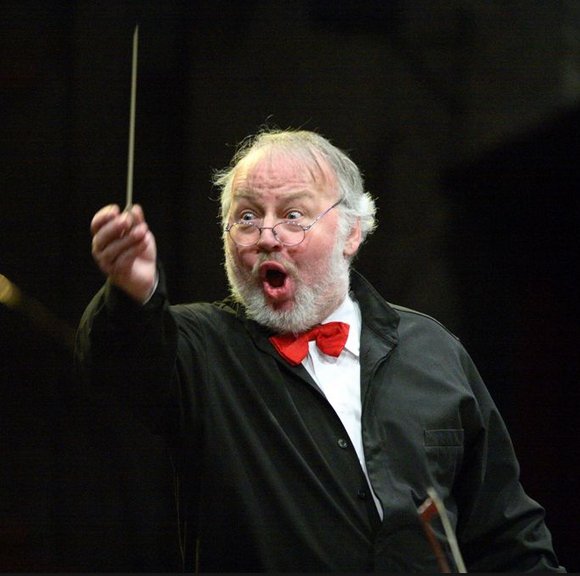
After building a career as one of the finest cellists to emerge in the last quarter of the 20th century, Schiff also has established himself as an important orchestra conductor. He made his professional debut as a conductor in 1986. He has conducted several leading orchestras of the world, including the Orchestra of the Age of Enlightenment, Sächsische Staatskapelle Dresden, Houston Symphony Orchestra, Philharmonia Orchestra (London), Los Angeles Philharmonic Orchestra, Münchner Philharmoniker, Oslo Philharmonic Orchestra, Orchestre de Paris, Rotterdam Philharmonic Orchestra, and Tonhalle Orchestra Zürich. He began conducting opera at the Theatre le Monnaie in Brussels with Die Zauberflöte in December 1992, and Fidelio in September 1993, and Der fliegende Holländer at the Bern Stadttheater in 1994. He was Principal Guest Conductor of the Deutsche Kammerphilharmonie Bremen from 1990 to 1992, and was Artistic Director of the Northern Sinfonia (in England) from 1990 to 1996 and recorded with them for the NMC label. Since 1990 he has also been Guest Conductor of Brucknerorchester Linz. He was Principal Conductor of the Northern Sinfonia from 1996 to 1999 (or 2000). From 1995 to 2001 he was Principal Conductor of the Orchester Musikkollegium Winterthur, and in 1998 he became Principal Guest Conductor of the Radio-Sinfonieorchester Stuttgart. In 2004, he was appointed Chief Conductor of the Wiener Kammerorchester and served in the post from 2005 to 2008. He stood down from the post in 2008 for health reasons. In the 1980’s Heinrich Schiff began recording extensively. He has released recordings of the main cello repertoire, ranging from Vivaldi and Haydn to Witold Lutosławski and Bernd Alois Zimmermann. His set of complete J.S. Bach Suites won many recording prizes, and his performance of both Dmitri Shostakovich concertos, with the composer's son Maxim Shostakovich conducting, won the Grand Prix du Disque and was found by the Stevenson Classical CD Guide to be the single classical compact disc in its survey that received the largest number of rave reviews from the English-speaking world's music critics. 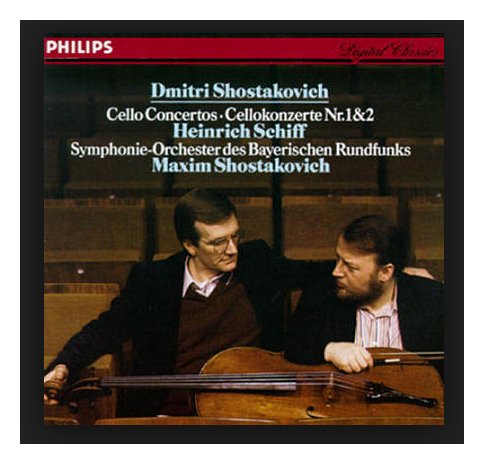
He won the Deutsche Schallplattenpreis for the Frank Peter Zimmermann's Double Concerto, in which he partnered with Frank Peter Zimmermann under the baton of Wolfgang Sawallisch. There was also widespread critical acclaim for the complete L.v. Beethoven works for cello and piano with Till Fellner, released in 2000. Heinrich Schiff plays the famous "Mara" Stradivarius made in 1711 and "Sleeping Beauty" made by Montagnana in Venice in 1739. -- Throughout this page, names which are links
refer to my interviews elsewhere on this website. BD
|
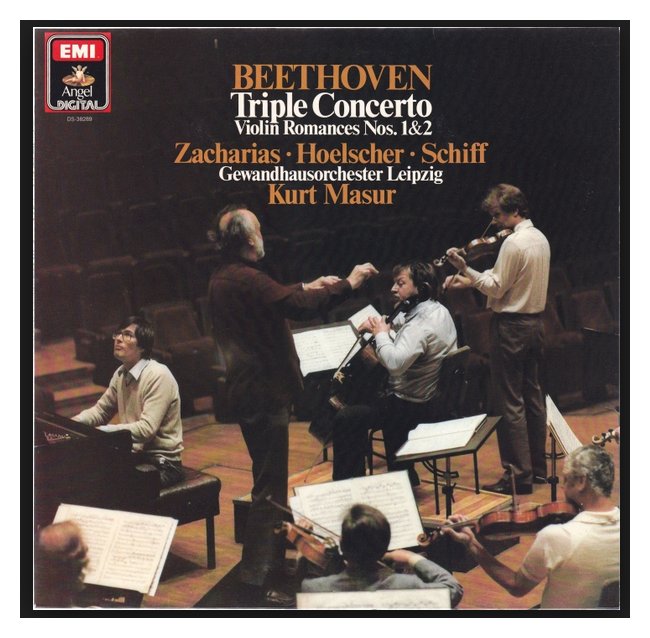 Bruce Duffie: You’re a cellist, so you have completely
different ideas and problems than pianists, and I have to get coordinated
and thinking away from the piano range.
Bruce Duffie: You’re a cellist, so you have completely
different ideas and problems than pianists, and I have to get coordinated
and thinking away from the piano range.| *Matteo Goffriller (1659–1742) was a Venetian
luthier, particularly noted for the quality of his cellos. Although it is known that Goffriller was born in Brixen, little else is known of him prior to his days in Venice, that is before 1685. He was active between 1685–1735 and was the founder of the "Venetian School" of luthiers, during a time when Venice was one of the most important centers of musical activity in the world. Goffriller's cellos had been erroneously attributed in the past to the Guarneri family, Carlo Bergonzi or even Antonio Stradivari and were virtually unknown until the 1920s, when they began to be discovered. The 1733 Goffriller cello once owned by Pablo Casals was originally attributed to Bergonzi. His earliest authenticated instrument is a viola da gamba dated 1689. Goffriller arrived in Venice in 1685 to work for luthier Martin Kaiser (Caiser). In 1685 he married Martin Kaiser's daughter Maddalena Maria Kaiser (Caiser), at the Madonna delle Grazie in Venice; she bore him twelve children (five boys and seven girls) in 26 years. Francesco Goffriller, long thought to be his brother, according to recent research actually was his son. He is believed to have taught luthiers Domenico Montagnana and Francesco Gobetti in addition to Francesco, and died in Venice in 1742. * *
* * *
**Jean-Baptiste Vuillaume (7 October 1798 – 19 March 1875) was a French luthier and winner of many awards. He made over 3,000 instruments and was a businessman and an inventor.He was born in Mirecourt where his father and grandfather were luthiers. Vuilaume moved to Paris in 1818 to work for François Chanot. In 1821, he joined the workshop of Simon Lété, François-Louis Pique's son-in-law, at Rue Pavée St. Sauveur. He became his partner and in 1825 settled in the Rue Croix des Petits-Champs under the name of "Lété et Vuillaume". His first labels are dated 1823. In 1827, at the height of the Neo-Gothic period, he started to make imitations of old instruments, some copies were undetectable. In 1827, he won a silver medal at the Paris Universal Exhibition, and in 1828, he started his own business at 46 Rue Croix des Petits-Champs. His workshop became the most important in Paris and within twenty years, it led Europe. A major factor in his success was his 1855 purchase of 144 instruments made by the Italian masters for 80,000 francs, from the heirs of Luigi Tarisio, an Italian tradesman. These included the Messiah Stradivarius and 24 other Stradivari. In 1858, in order to avoid Paris customs duty on wood imports, he moved to Rue Pierre Demours near the Ternes, outside Paris. He was at the height of success, having won various gold medals in the competitions of the Paris Universal Exhibitions in 1839, 1844 and 1855; the Council Medal in London in 1851 and, in that same year, the Legion of Honour. A maker of more than 3,000 instruments—almost all of which are numbered—and a fine tradesman, Vuillaume was also a gifted inventor, as his research in collaboration with the acoustics expert Savart demonstrates. As an innovator, he developed many new instruments and mechanisms, most notably a large viola which he called a "contralto", and the three-string Octobass (1849–51), a huge triple bass standing 3.48 metres high. He also created the hollow steel bow (particularly appreciated by Charles de Bériot, among others), and the 'self-rehairing' bow. For the latter, the hair purchased in prepared hanks could be inserted by the player in the time it takes to change a string, and was tightened or loosened by a simple mechanism inside the frog. The frog itself was fixed to the stick, and the balance of the bow thus remained constant when the hair stretched with use. He also designed a round-edged frog mounted to the butt by means of a recessed track, which he encouraged his bowmakers to use; other details of craft, however, make it possible to identify the actual maker of many Vuillaume bows. The bows are stamped, often rather faintly, either "vuillaume à paris" or "j.b. vuillaume". Other innovations include the insertion of Stanhopes in the eye of the frogs of his bows, a kind of mute (the pédale sourdine) and several machines, including one for manufacturing gut strings of perfectly equal thickness. |
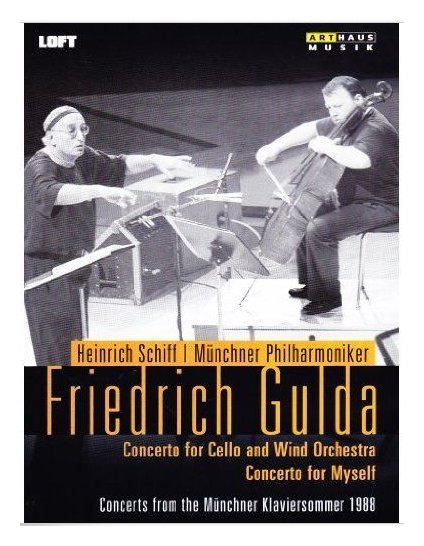 BD: Even the glue?
BD: Even the glue?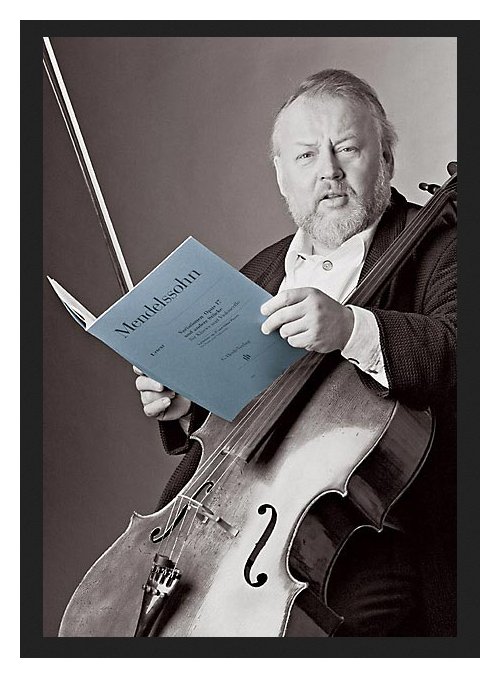 BD: That’s too bad.
BD: That’s too bad.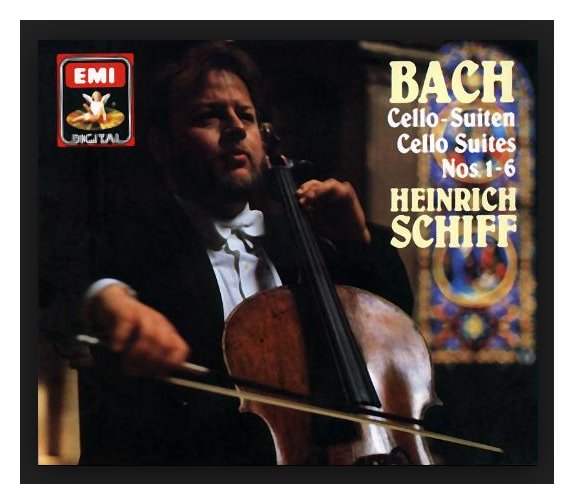 HS: That’s what I mean, certainly. That
was just an example. But that goes to all these things. We spoke
about the intellectual background to mainly older music. You can also
take a little piece like the Vocalise
of Rachmaninoff or the Liebesleid
of Kreisler. It’s not only what you do and how you vibrate, and what
kind of instruments you play, and what kind of wonderful dark sound your
G string does, it is what you think, it is what you feel, and if that is
sincere and strong, then that is the result of your human being, of your
knowledge, of you trying to be a human being. All that! That
is will convince.
HS: That’s what I mean, certainly. That
was just an example. But that goes to all these things. We spoke
about the intellectual background to mainly older music. You can also
take a little piece like the Vocalise
of Rachmaninoff or the Liebesleid
of Kreisler. It’s not only what you do and how you vibrate, and what
kind of instruments you play, and what kind of wonderful dark sound your
G string does, it is what you think, it is what you feel, and if that is
sincere and strong, then that is the result of your human being, of your
knowledge, of you trying to be a human being. All that! That
is will convince.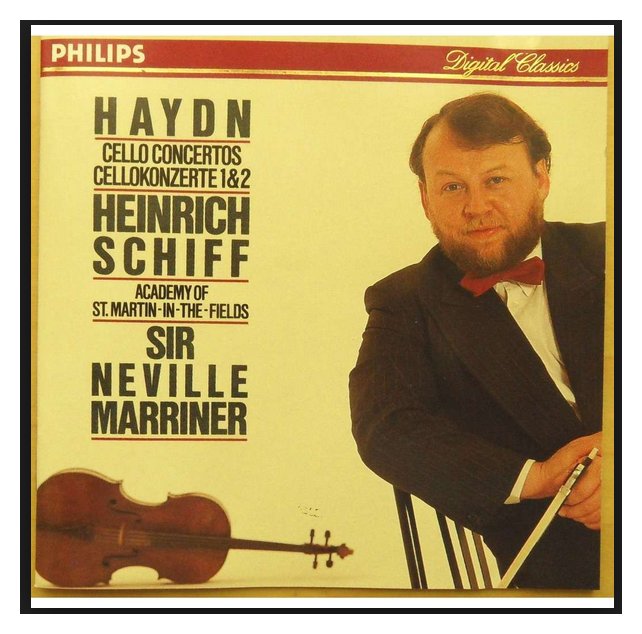 HS: Generally not. There are funny stories
like ‘when you play in Italy, they will scream for minutes’. Not at
all! The chamber music audience in Rome is the same as you would probably
expect in Gothenburg, because there you would think they are the cool, northern
people who probably don’t dare to show their emotions.
HS: Generally not. There are funny stories
like ‘when you play in Italy, they will scream for minutes’. Not at
all! The chamber music audience in Rome is the same as you would probably
expect in Gothenburg, because there you would think they are the cool, northern
people who probably don’t dare to show their emotions.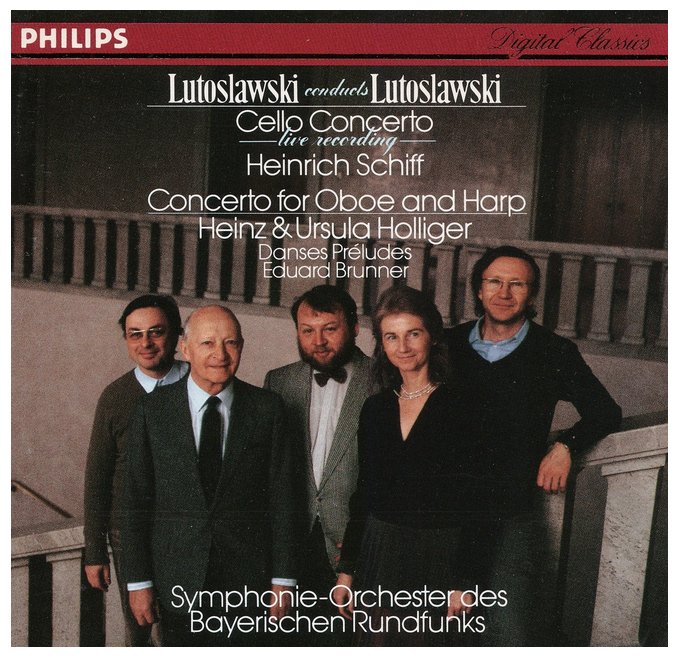 HS: Certainly! It is obvious, especially
in the last thirty years, and as I play avant-garde music, some of which is
composed for me, that there is a very big change for the sake of the cello.
There are many fewer piano and violin concertos in the last thirty years
than cello concertos. [Remember, this
conversation took place in July of 1989.] If you look at certain
composers, Lutosławski wrote a cello concerto already in 1970, and it took
him nearly twenty more years until he did a piano concerto. He did
not write a violin concerto yet but just a shorter piece three years ago
for violin and small orchestra. Penedrecki wrote two cello concertos,
one violin concerto [for Isaac Stern, and another
would be written in 1995 for Anne-Sophie Mutter],
no piano concerto [until 2002],
and so on, and so on, and so on.
HS: Certainly! It is obvious, especially
in the last thirty years, and as I play avant-garde music, some of which is
composed for me, that there is a very big change for the sake of the cello.
There are many fewer piano and violin concertos in the last thirty years
than cello concertos. [Remember, this
conversation took place in July of 1989.] If you look at certain
composers, Lutosławski wrote a cello concerto already in 1970, and it took
him nearly twenty more years until he did a piano concerto. He did
not write a violin concerto yet but just a shorter piece three years ago
for violin and small orchestra. Penedrecki wrote two cello concertos,
one violin concerto [for Isaac Stern, and another
would be written in 1995 for Anne-Sophie Mutter],
no piano concerto [until 2002],
and so on, and so on, and so on. 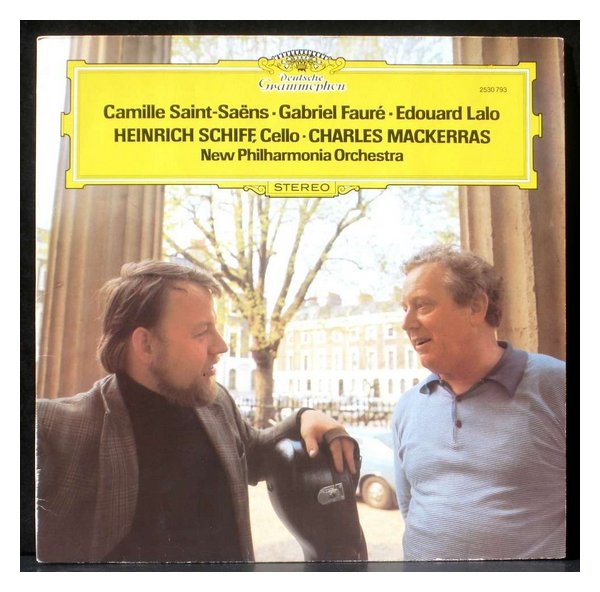 HS: I couldn’t say anything in general.
It is so particular.
HS: I couldn’t say anything in general.
It is so particular.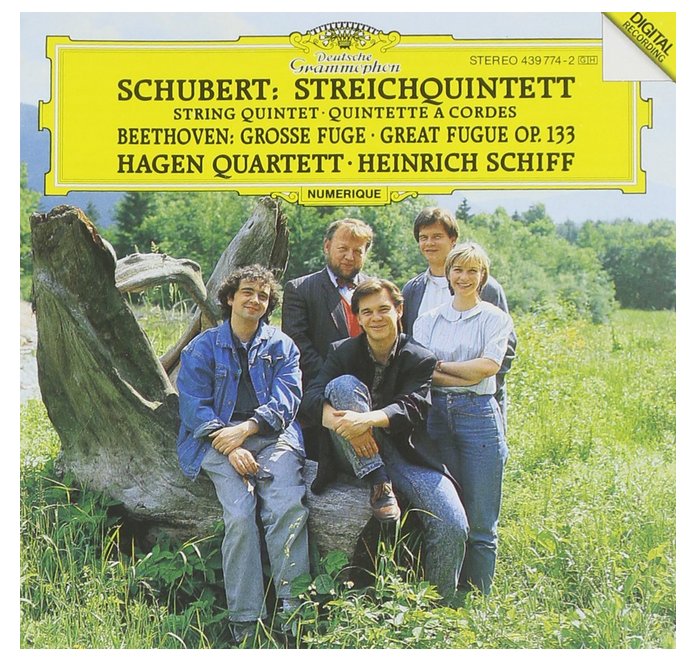 BD: You play solo recitals and you do chamber
music and you do orchestral works. How do you balance your career,
and do you prefer one over the others?
BD: You play solo recitals and you do chamber
music and you do orchestral works. How do you balance your career,
and do you prefer one over the others?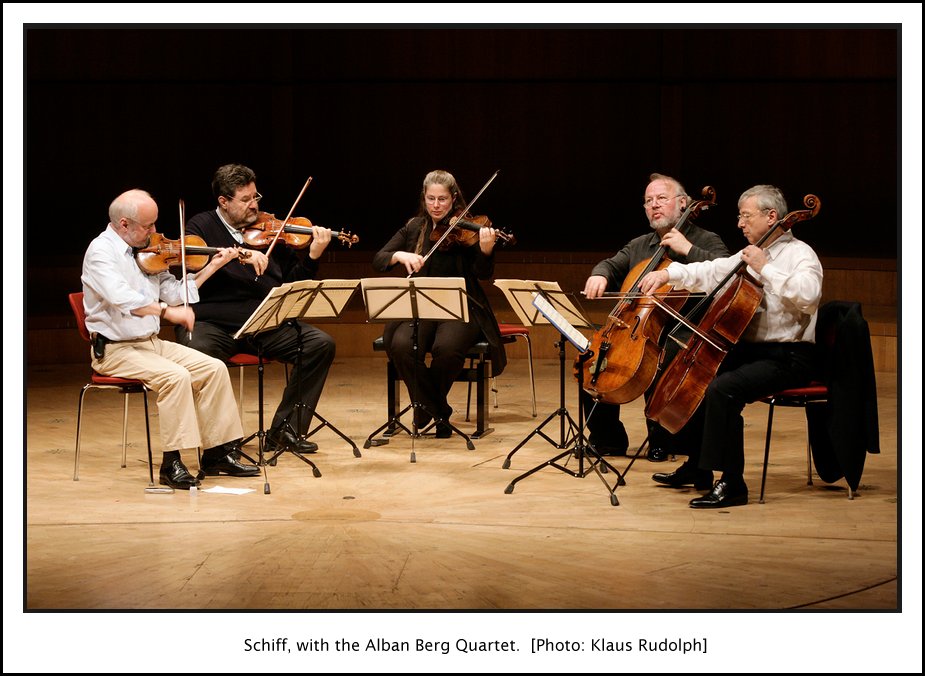
© 1989 Bruce Duffie
This conversation was recorded at the Ravinia Festival on July 3, 1989. Portions were broadcast on WNIB the following year, and again in 1991, 1996 and 2000; on WNUR in 2009 and 2015; and on Contemporary Classical Internet Radio in 2009. This transcription was made in 2015, and posted on this website at that time. My thanks to British soprano Una Barry for her help in preparing this website presentation.
To see a full list (with links) of interviews which have been transcribed and posted on this website, click here.
Award - winning broadcaster Bruce Duffie was with WNIB, Classical 97 in Chicago from 1975 until its final moment as a classical station in February of 2001. His interviews have also appeared in various magazines and journals since 1980, and he now continues his broadcast series on WNUR-FM.
You are invited to visit his website for more information about his work, including selected transcripts of other interviews, plus a full list of his guests. He would also like to call your attention to the photos and information about his grandfather, who was a pioneer in the automotive field more than a century ago. You may also send him E-Mail with comments, questions and suggestions.